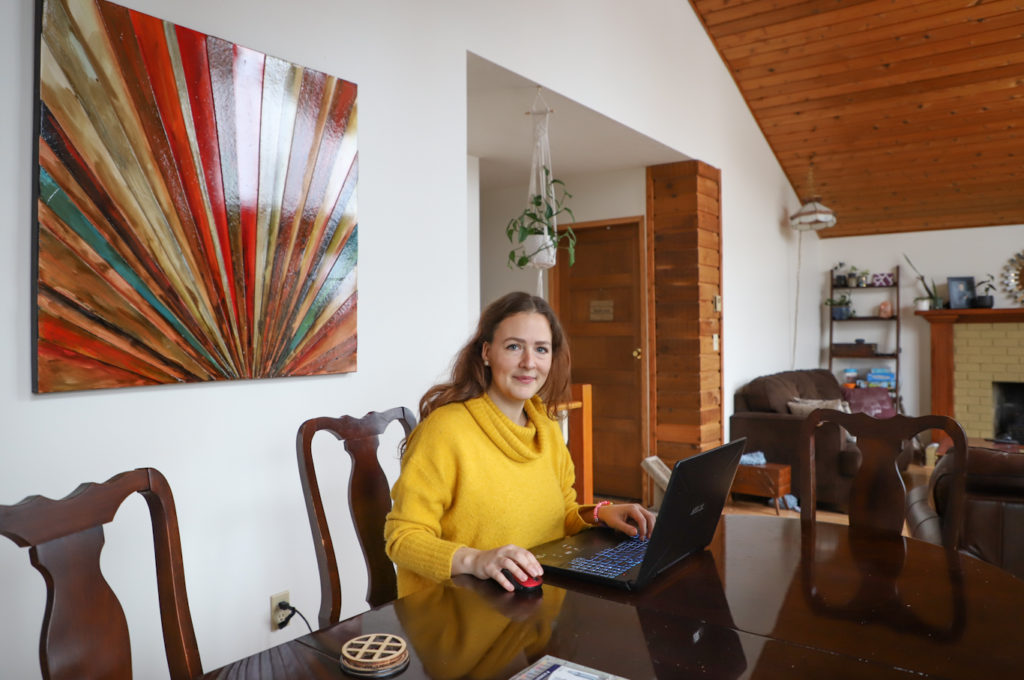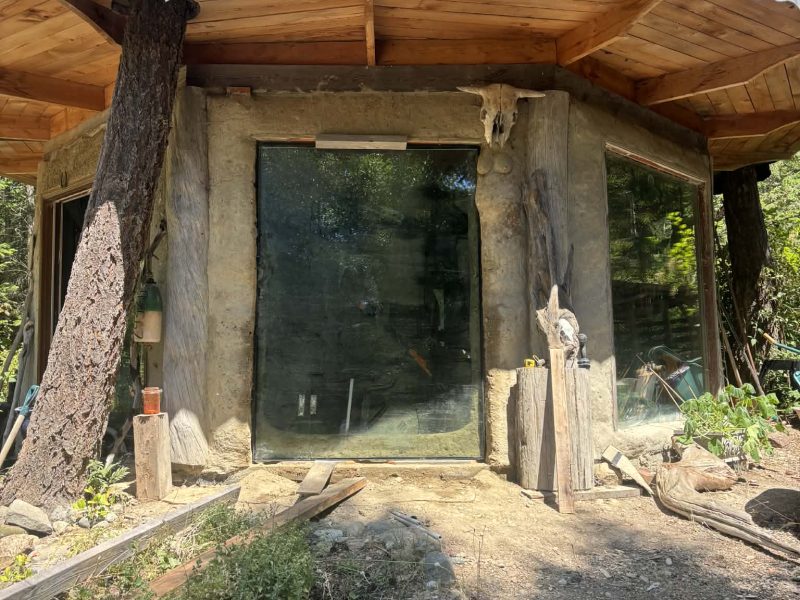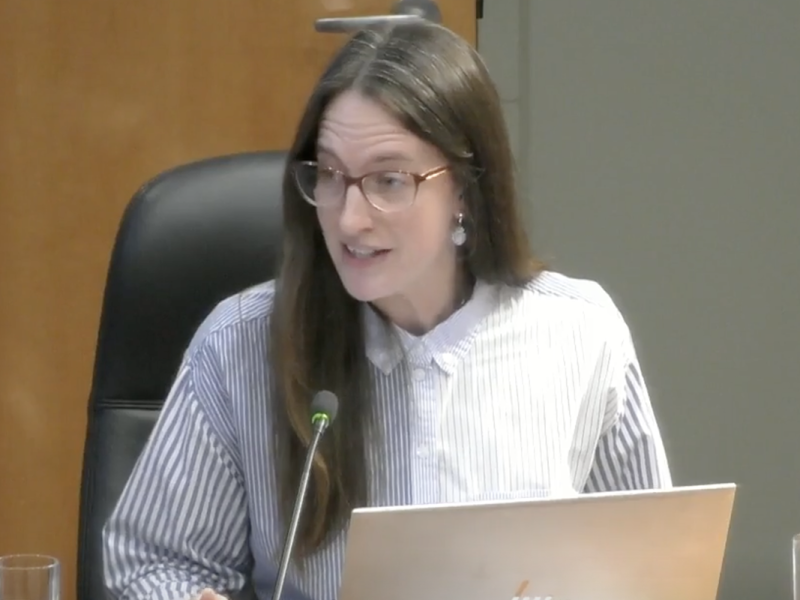
On March 13, Julie Chadwick was featured on CHLY 101.7 FM’s new current affairs show, Mid Coast Morning with hosts Mick Sweetman and Jesse Woodward, to talk about The Discourse’s investigative series on Nanaimo’s rent crisis, Making Rent. Here are some highlights from this conversation.
Can you tell us just a bit about your new investigation?
Yeah, so part of how The Discourse works is that we do community-engagement journalism. So one thing that we did was we said to people, ‘What kind of what kind of issues do you want us to cover?’ And for me, I just had gone through a period of my life where I moved several times within a couple of years. And it was right around 2015, 2016, 2017 right in there I just noticed a huge jump in rental prices, I’d say right around right around 2016, it was like, in a period of a year, it seemed like everything just went up by 500 bucks.
And it’s the experience of loads of people. So with the community engagement part, we take it to the residents of Nanaimo, and really ask them, ‘What is the situation?’ So we did a survey specifically for renters, and another one for landlords and we got a lot of responses. So going through those, I mean it really was clearly a crisis for a lot of people.
I think for a lot of people, it’s factors like having an animal or having kids, you know. Even prior to there being such a bad vacancy rate, like it’s about one per cent right now, I had people saying, you know, ‘Oh, I don’t think this is appropriate for you,’ because I had two kids, now I have three. ‘Oh, I don’t think you’ll like this place,’ like that kind of thing. So one woman I talked to, Maegan Strom, she has four kids, she has a dog and she’s a single mom. And she said, all they hear is ‘Single mom with four kids….No.’ And two of her kids are grown and are working. She has a good income. She’s a fourth year university student. She can afford the rent and stuff. But she called 30 places and she could only view like two or three of them.
At the place that she’d been in for six years, she was paying $1,200 for a whole house and had done a lot of renos in the house herself. So yeah, a lot of the time you have tenants that are really contributing to the houses. And then you have situations where the housing market is just so hot that a lot of landlords are deciding to put their houses on the market. So that’s one factor that’s really adding to the problem. And you know, it’s understandable. If you can make a lot of money on your house right now and you’re thinking of selling, now really is the time. There’s a lot of demand, there’s not a lot of supply. A lot of people are just getting evicted for that. So it’s such a tight rental market, any factor can work against you. So it doesn’t matter that she necessarily had a really good reference and all that kind of stuff.
I think even in your story you even mentioned a bidding war?
Yeah, so she was telling me, ‘The places I’m looking at are like twice what I’m paying now, like $3,000 a month.’ So I just said, ‘Show me some of the listings’ So she sent me some of the listings and it’s true. Like $2,500 is pretty normal for a three-bedroom place right now. Or even sometimes a two-bedroom. And I called one of the landlords and he said that he had put his place out there for I think it was somewhere in the range of $2,500 and he had people offering him more than $3,000. And he didn’t even accept it. He said, ‘I got like, 100 calls right away.’ He said, ‘I felt I felt bad for people. It was like, you know, I knew that I was only going to pick one person, I was gonna have 99 other people that were disappointed.’
How much are people spending on rent in Nanaimo?
So there is this kind of benchmark for affordable rent, like 30 per cent of their income. So people are paying way more. Some of the data we looked at showed that about half of the renters [in Nanaimo] were paying more than 30 per cent.
What’s really interesting is when you break it out for income levels. So when you look at the upper income levels of people in Nanaimo, they’re paying like 16 per cent on average. But then when you go to the poorest section of people in Nanaimo, in the range of making $12,000 or so a year, they’re often paying more than 70 per cent of their income on rent. So yeah, I mean, we have a really unsustainable situation.
Like one expert I talked to, Patrick Condon, he was saying like in Vancouver, they have a fairly high level of non-market housing, higher than you would think, considering that Vancouver is quite unaffordable. So they have about 15 per cent, and a lot of that is co-op housing.
And he said that’s not even just focused particularly on say supportive housing, or for like, the absolute lowest income or for homelessness. That’s actually kind of like cheap, middle class housing. And he said the reason why that’s important, in addition to taking care of the very, very precariously housed or homeless, is that people in their 30s and 40s are really contributing a lot to the economy. You’re really kind of in your highest earning potential. You have kids, you’re spending money on courses for the kids all kinds of stuff, right. And so you really want to keep those people in your community and keep them comfortable, because everybody benefits. It’s the whole picture kind of a thing.
So we were sort of looking at the whole range of renters. And in the first story, we talked to this woman, Sarah. I thought her story was really interesting, because she’s actually making really good money, she said she’s making more than $30 an hour, she runs a successful marketing firm. And she’s really struggling. When her and her husband split up, it took a little while for her to get off the mortgage. And she was looking for a place [to buy] and she found one condo that she could afford, and then couldn’t buy it, because with COVID, she couldn’t get off the mortgage and the banking was complicated. And so that place sold, and then she saw it come up in the market again. But by that time, it had gone up so much in less than a year that she couldn’t afford it anymore. And this is someone who is making good money. So everybody’s struggling.
What do you see happening in the future?
I think as a journalist it’s not necessarily my place to do that. But what I’m hoping to do with the stories is to help people understand what’s going on. So the situation is really complicated. But it’s also in some ways, kind of simple. And so I’m hoping to break it down so that people feel more empowered to understand what’s happening in their own lives.
Where can people go if they want to read your stories?
So we have a newsletter. We share it on social media on Facebook and Twitter and stuff as well. I also wanted to mention that we’re at a stage now where we’re seeking monthly supporters. So if people like what they’ve been seeing so far, these different series that we’ve been doing, the way that we’ve been engaging in the community, which I think has been really exciting for me as a reporter, they can sign up to be one of our ongoing supporters.
It could be, you know, five bucks a month, whatever. And that goes right towards hiring local reporters to be covering these issues. We’re trying to get 200 monthly supporters by March 26. So that’d be really great if people wanted to sign up. [end]
Read the rental affordability series Making Rent here. Sign up for our weekly newsletter for the latest updates on this reporting.



